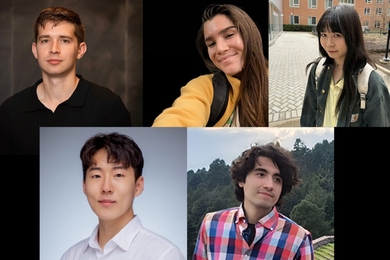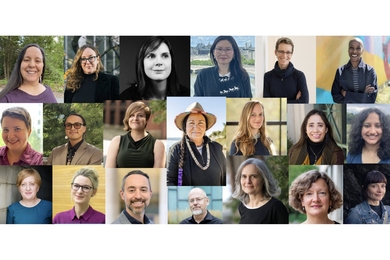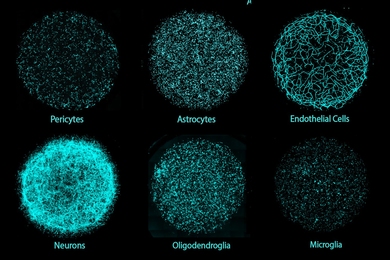Since its launch in 2001, the MIT-France Program has matched over 840 MIT students with real-life, hands-on, work experiences at French companies and labs from Paris to Lyon to Marseille. Created as part of the MIT International Science and Technology Initiatives (MISTI), MIT-France connects students and faculty with cutting edge French research and innovation through its internship and faculty fund programs. One of 19 country programs at MISTI, MIT-France supports MISTI’s mission to bolster connections between the Institute and the world through international education and research collaborations.
How did MISTI and MIT-France get to where they are today? There is no one better to answer that question than Suzanne Berger, the Raphael Dorman-Helen Starbuck Professor of Political Science, who served as MISTI’s founding director and, until last summer, the faculty director of MIT-France. Her research has focused on political development in France and now examines the effects of globalization on the economy.
Firmly anchored in the MISTI model of making hands-on, international education accessible to MIT students, MIT-France is not a study-abroad program: It is a research and work experience immersed in another country and culture, and one that imparts real impact on students. Berger says, “We believe this is absolutely the best kind of education for globalization for lives and careers that are going to be global.”
MISTI over the years
Before the mid-1980s, nothing like MISTI existed at MIT — or other universities, for that matter. The precursor to MISTI and MIT-France was the MIT-Japan Program, launched in 1983. Richard Samuels, professor of political science and director of the Center for International Studies, created a program for students to travel to Japan and experience life at a lab or company. It was a prescient move towards a global program.
Under Berger's leadership, MISTI formally launched in 1994 with two country programs (Japan and China). MIT-France followed a few years later along with programs in Germany, India, and Israel. As student interest in MISTI programs grew steadily over the years, language and culture classes on campus revitalized with notable increases in enrollment. Belgium, Brazil, Chile, Israel, Mexico, Singapore, and Spain programs were founded. MISTI also expanded its educational programs to include Global Teaching Labs, Middle East Education through Technology (MEET), and Empowering the Teachers.
“We’ve seen a tremendous change,” Berger says. “Now, I think people understand that we need to have our students capable of learning and creating knowledge outside the United States and outside MIT, if we want them to be able to make big contributions to society. I think faculty realized that these students are going to be dealing with these other countries over their careers, and that this is very valuable work for the students.”
In 2011, Chappell Lawson, an associate professor of political science at MIT and a member of the MIT Center for International Studies, succeeded Berger as MISTI’s director. Under his leadership, MISTI has added eight new programs: Africa, Arab World, Korea, Netherlands, Portugal, Russia, Singapore, and Switzerland.
Each country program at MISTI is also supported by a faculty director bearing a connection to the target country; MIT-France welcomed its newest faculty director, Patrick Jaillet, the Dugald C. Jackson Professor of Electrical Engineering and Computer Science, this past summer. “We have some of the most innovative and productive faculty being willing to do this,” Berger says. “I think that makes it very compelling for students, when they see that faculty they admire are involved in this program.”
Beyond student programs
In 2001, a faculty grant program was created to support collaborative projects between MIT and France. This fund, the MIT-France Seed Fund, was made possible through a $2 million endowment funded by the French Ministry of Foreign Affairs and MIT. Since its creation, the MIT-France Seed Fund Program has funded 103 projects with over $1.3 million.
Beyond promoting MIT-France connections, the success of the MIT-France Seed Fund inspired a new Institute initiative to spur and support international research collaboration. “What we could see was complementarity,” Berger says. “People could get through these collaborations a kind of access to knowledge that they just couldn’t possibly do within their own labs.” The MISTI Global Seed Funds (GSF) program — officially launched in 2008 — was modeled after the France fund, and is currently comprised of 22 country funds, the MIT-Imperial College London Seed Fund and a general pool for projects in any country. Since the program’s launch, MISTI GSF has awarded $9.6 million to 450 projects in 74 countries.
A global education
Like all MISTI programs, MIT-France carefully tailors internship and research positions through one-on-one interviews with students, taking into account the students’ language abilities, cultural preparation, and previous research or work experience. Each internship is designed to support student interests, bolster the academic and career ambitions of program participants and to provide each student the opportunity to apply theoretical knowledge obtained on-campus in the field. Leveraging a carefully curated network of French partners, the MIT-France program manager works closely with select companies, universities, and research institutions to identify projects that will help the students learn and grow as scientists and engineers.
All costs to the student — including travel, housing, and food — are covered by the program, a crucial part of the MISTI’s mission. “If you’ll really prepare yourself to work in a team outside the U.S., MISTI and MIT will make it an experience that doesn’t cost you or your family any additional money,” Berger says. “We believe this experience is part of your education. I think that’s quite different from many other universities.”
In order to participate in these funded experiences, students must commit to proper preparation in language and culture before and after applying. Undergraduate students must complete five semesters of language in order to be eligible for MIT-France, and will attend a series of training sessions organized by the program prior to departure. Berger views this pre-departure coursework and preparation as a critical component of a MISTI experience. “This combination of on-campus learning together with this experience to really go out and do something,” Berger says, “is what we see as global education.”
Engineered in part to ensure a smooth transition to the office or lab, cultural and language preparation and training also provide students an important framework for making sense of a global experience. Berger remembers, in particular, one graduate student who went to do research at a prominent laboratory in France. “For the first month she thought she had made a terrible mistake,” Berger recalls. To the student, it seemed that her colleagues were not working very hard at all; rather, they were taking long coffee breaks, sitting around, and talking. Then, a month into her internship, the project made a huge leap forward. “She just didn’t see how they had done it,” Berger says. “She then remembered the training sessions we had given her before she left, with this emphasis on observing and trying to understand how the project gets organized. On one level it seems to be work on the same sort of problems we’re doing at MIT, but people do have different ways of organizing themselves for solving problems,” she says. “And that’s what we want them to learn: to become more flexible mentally, in a certain sense — to look at and understand different ways of tackling problems.”
This past summer the MIT-France Program placed over 65 MIT undergraduates and graduate students with internship and research positions and another eight MIT students participated in faculty-led seed fund projects in France. MIT-France and MISTI are a part of the School of Humanities, Arts and Social Sciences (MIT-SHASS).








